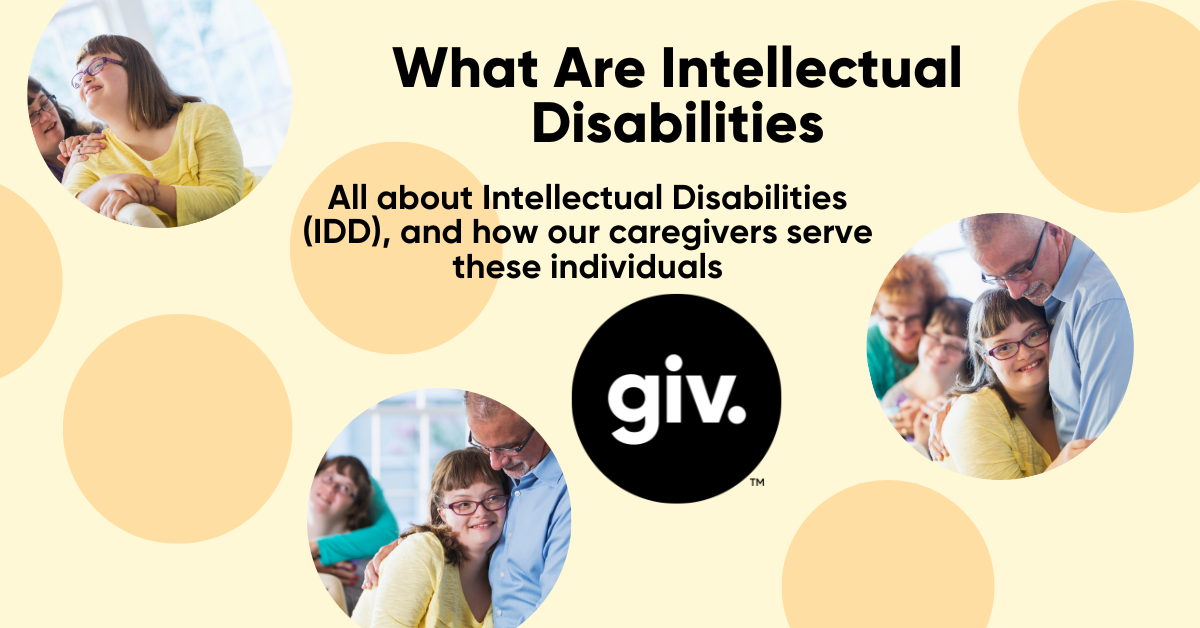What Are Intellectual Disabilities? Intellectual disabilities are neurodevelopmental disorders characterized by limitations in intellectual functioning and adaptive behavior. These limitations often manifest during childhood and persist throughout life, impacting various aspects of an individual’s daily functioning. In this comprehensive guide, we will explore the intricacies of IDD, including their causes, characteristics, diagnosis, and the support systems available to individuals and their families.
Understanding What Are Intellectual Disabilities:
Intellectual disabilities, also known as intellectual developmental disorders, encompass a wide range of conditions that affect cognitive abilities and adaptive behavior. These disabilities can result from genetic factors, prenatal exposure to harmful substances, or complications during birth. Understanding the nature of IDD is crucial for providing appropriate support and intervention.
Intellectual disabilities are often part of a broader spectrum of developmental disorders, which may include conditions such as autism spectrum disorder and cerebral palsy. While each condition has its own unique characteristics, they share common features related to impaired intellectual functioning and adaptive behavior.
Exploring the Spectrum of Intellectual and Developmental Disabilities:
The spectrum of intellectual and developmental disabilities encompasses a diverse range of conditions that vary in severity and presentation. Some individuals may have mild intellectual impairments, while others may experience more profound limitations in cognitive abilities and adaptive behavior.
Within this spectrum, individuals may exhibit a wide range of strengths and challenges. For example, some individuals with IDD may excel in certain areas, such as music or art, while requiring support in other areas, such as communication or independent living skills. Understanding the spectrum of intellectual and developmental disabilities allows for tailored interventions and support services to meet individual needs.
Defining Intellectual Disability: Causes and Characteristics:
Intellectual disability is characterized by deficits in intellectual functioning and adaptive behavior. Intellectual functioning refers to the ability to learn, reason, and solve problems, while adaptive behavior encompasses practical skills needed for everyday life.
There are various causes of intellectual disabilities, including genetic conditions, prenatal exposure to toxins or infections, and birth complications that result in brain injury. Additionally, environmental factors such as poverty, malnutrition, and lack of access to quality healthcare can also contribute to the development of IDD.
Investigating Developmental Disabilities: Factors and Effects:
Developmental disabilities encompass a broad range of conditions that affect physical, cognitive, or emotional development. While intellectual disabilities specifically impact intellectual functioning, other developmental disabilities may affect motor skills, communication, or socialization.
Factors such as genetic conditions, prenatal exposures, and perinatal complications can increase the risk of developmental disabilities. These disabilities can have significant effects on an individual’s quality of life, impacting their ability to participate in education, employment, and social activities.
Delving Deeper into Intellectual Disabilities: An Overview:
Intellectual disabilities can vary widely in severity and presentation, ranging from mild to profound. Individuals with mild IDDs may have slightly below-average intellectual functioning and may be able to live independently with appropriate support.
In contrast, individuals with profound intellectual disabilities may have significant impairments in intellectual functioning and adaptive behavior, requiring constant supervision and support for daily activities. Understanding the diverse nature of IDDs is essential for providing tailored interventions and support services to meet individual needs.
Unpacking Intellectual Developmental Disorder:
Intellectual developmental disorder is a term used to describe conditions characterized by deficits in intellectual functioning and adaptive behavior. These disorders often manifest during childhood and persist throughout life, impacting various aspects of an individual’s functioning.
Intellectual developmental disorders encompass a wide range of conditions, including intellectual disabilities, autism spectrum disorder, and specific learning disabilities. While each condition has its own unique features and diagnostic criteria, they share common characteristics related to impaired cognitive abilities and adaptive behavior.

Assessing Intellectual Functioning and Adaptive Behavior:
Assessing intellectual functioning and adaptive behavior is essential for diagnosing intellectual disabilities and determining appropriate interventions. Intellectual functioning is typically assessed through standardized tests that measure cognitive abilities such as reasoning, problem-solving, and memory.
Adaptive behavior is evaluated through observations of an individual’s practical skills and ability to function independently in everyday life. Assessments may include evaluating communication skills, social interactions, self-care abilities, and use of community resources.
Navigating the Diagnostic and Statistical Manual for Diagnosis:
The Diagnostic and Statistical Manual of Mental Disorders (DSM) is a widely used diagnostic manual that provides criteria for diagnosing intellectual disabilities and other mental health conditions. The DSM outlines specific criteria for diagnosing IDDs based on intellectual functioning and adaptive behavior.
Healthcare professionals use the DSM criteria, along with standardized tests and clinical observations, to assess and diagnose IDDs. A thorough diagnostic evaluation is essential for accurately identifying intellectual disabilities and developing appropriate intervention plans.
Impact of Intellectual Disabilities on Daily Life:
Intellectual disabilities can have a profound impact on various aspects of an individual’s daily life, including education, employment, social relationships, and independent living. These disabilities may affect an individual’s ability to learn new skills, communicate effectively, and navigate social situations.
Individuals with IDDs may require additional support and accommodations to participate fully in school, work, and community activities. Challenges related to intellectual disabilities can vary depending on the severity of the condition and the availability of support services and resources.
Promoting Practical Skills and Adaptive Behavior:
Promoting practical skills and adaptive behavior is essential for individuals with intellectual disabilities to achieve independence and participate fully in society. Practical skills encompass a range of abilities needed for everyday living, such as personal hygiene, meal preparation, household chores, and money management.
Adaptive behavior refers to an individual’s ability to adapt to their environment and perform daily tasks independently. Promoting practical skills and adaptive behavior involves providing structured learning opportunities, teaching problem-solving strategies, and offering ongoing support and guidance.

Understanding the Range of Intellectual Disability Severity:
Intellectual disabilities can vary widely in severity, ranging from mild to profound. The severity of IDD is typically determined by assessing intellectual functioning and adaptive behavior using standardized tests and clinical observations.
Individuals with mild intellectual disabilities may have slightly below-average intellectual functioning and may be able to live independently with appropriate support. In contrast, individuals with profound IDDs may have significant impairments in intellectual functioning and adaptive behavior, requiring constant supervision and support for daily activities.
Coping with Mild Intellectual Disability: Challenges and Support:
Individuals with mild IDDs may face unique challenges related to learning, communication, and social interaction. While they may have strengths in certain areas, they may require support and accommodations to succeed in school, work, and community settings.
Support for individuals with mild intellectual disabilities may include educational interventions, social skills training, and access to community resources. It is essential to recognize and build on the individual’s strengths while providing support in areas of need.
Managing Moderate Intellectual Disability: Strategies and Resources:
Individuals with moderate intellectual disabilities may require more intensive support and intervention to address their cognitive and adaptive functioning needs. They may face challenges related to communication, daily living skills, and socialization.
Strategies for supporting individuals with moderate IDDs may include specialized education programs, vocational training, and life skills coaching. Collaborating with healthcare providers, educators, and community organizations can help ensure that individuals receive comprehensive support and services.
Addressing Severe Intellectual Disability: Care and Intervention:
Individuals with severe intellectual disabilities have significant impairments in intellectual functioning and adaptive behavior, requiring extensive support and intervention. They may have limited communication abilities and may require assistance with all aspects of daily living.
Providing care and intervention for individuals with severe IDDs involves a multidisciplinary approach that addresses their medical, educational, and social needs. This may include personalized care plans, adaptive equipment, and residential support services.
Co-occurring Conditions: Intellectual Disability and Mental Disorders:
Intellectual disabilities often co-occur with other mental health conditions, such as autism spectrum disorder, attention-deficit/hyperactivity disorder (ADHD), and anxiety disorders. These co-occurring conditions can complicate diagnosis and treatment and may require specialized interventions.
It is essential for healthcare providers to assess for co-occurring conditions in individuals with IDDs and provide appropriate support and treatment. Collaborating with mental health professionals and accessing community resources can help address the complex needs of individuals with co-occurring conditions.
Early Diagnosis and Intervention for Intellectual Disabilities:
Early diagnosis and intervention play a crucial role in supporting individuals with intellectual disabilities and maximizing their potential for development. Early identification allows for early access to interventions and support services that can address the unique needs of individuals and their families.
Screening for IDDs may begin during infancy and continue throughout childhood to monitor developmental progress and identify potential concerns. Early intervention programs, such as early childhood education, speech therapy, and occupational therapy, can help promote optimal development and improve long-term outcomes.

Advocating for Educational Support and Specialized Services:
Access to educational support and specialized services is essential for individuals with intellectual disabilities to succeed in school and achieve their academic goals. Educational interventions should be tailored to the individual’s unique learning needs and may include accommodations, modifications, and alternative instructional strategies.
Advocating for educational support may involve working with school administrators, teachers, and special education professionals to develop individualized education plans (IEPs) and ensure access to appropriate services and resources. It is essential to collaborate with educational professionals to create inclusive learning environments that promote the academic success of individuals with IDDs.
Empowering Individuals and Families through Education:
Empowering individuals and families through education is essential for promoting self-advocacy, informed decision-making, and independence. Education about intellectual disabilities can help individuals and their families understand their rights, access support services, and navigate systems of care.
Educational resources and training programs can provide individuals with IDDs and their families with the knowledge and skills needed to advocate for themselves and access community resources. By empowering individuals and families through education, we can promote autonomy, self-determination, and quality of life.
Accessing Healthcare Services and Developmental Support:
Access to healthcare services and developmental support is essential for addressing the medical, behavioral, and developmental needs of individuals with intellectual disabilities. Healthcare providers play a crucial role in diagnosing IDDs, managing co-occurring conditions, and coordinating care.
Healthcare services for individuals with IDDs may include regular health screenings, medical management, and access to specialists such as neurologists, psychiatrists, and developmental pediatricians. Developmental support services may include early intervention programs, behavioral therapy, and access to assistive devices and technology.
Promoting Independence and Community Integration:
Promoting independence and community integration is a key goal for individuals with intellectual disabilities, enabling them to participate fully in society and lead fulfilling lives. Independence involves developing skills for self-care, decision-making, and problem-solving, while community integration involves participating in social, recreational, and vocational activities.
Supporting independence and community integration may involve providing skills training, facilitating access to transportation and community resources, and promoting opportunities for social inclusion and meaningful employment. By fostering independence and community integration, we can empower individuals with intellectual disabilities to live with dignity and autonomy.
Collaborating with Healthcare Providers and Community Services:
Collaboration with healthcare providers and community services is essential for providing comprehensive support and services to individuals with intellectual disabilities and their families. Healthcare providers play a central role in diagnosing and managing intellectual disabilities, while community services provide a range of support options for individuals and families.
Collaborating with healthcare providers involves establishing open communication, sharing information, and coordinating care to ensure that individuals receive appropriate medical and developmental support. Community services, such as disability support organizations, advocacy groups, and social service agencies, offer a variety of resources and programs to address the diverse needs of individuals with intellectual disabilities and their families.
Conclusion:
In conclusion, understanding what intellectual disabilities are and how they impact individuals is essential for providing effective support and intervention. By exploring the spectrum of intellectual and developmental disabilities, defining their causes and characteristics, and delving deeper into their effects on daily life, we can better address the needs of individuals with intellectual disabilities and promote their independence and well-being. Through early diagnosis and intervention, advocacy for educational support and specialized services, and collaboration with healthcare providers and community services, we can empower individuals with intellectual disabilities to reach their full potential and live meaningful lives.






